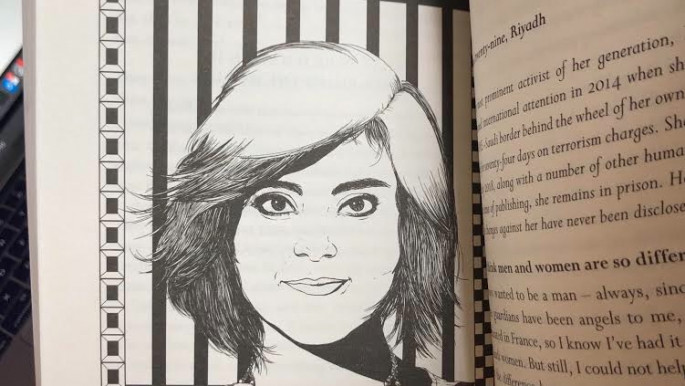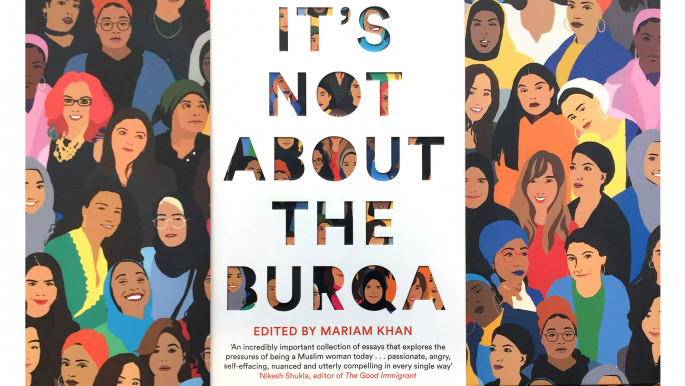Queens of the Kingdom: The Women of Saudi Arabia Speak
What is it like to be a woman in Saudi Arabia today? "Oppressive" might be the first word that pounces to mind. The reality is that Saudi women are far from homogeneous and their feelings about the kingdom they hail from constitute a complex constellation of views.
Some oppose the compulsory wearing of the hijab, others do not. Some welcome changes underway in the country, others are wary of them. Some are happy to stay at home to raise a family, others want nothing more than to enter the workforce.
And yet it's fair to say that the heterogeneity and nuance are rarely top of mind in the Western world, given Saudi women are subject to the country's oppressive male guardianship system, and face systematic discrimination.
 |
|
| Loujain al-Hathloul was detained in May last year during a sweeping crackdown on activists just a month before Saudi Arabia ended its longstanding ban on women driving |
Nicola Sutcliff, a linguist and educator who worked as a teacher in the country for four years, has addressed what might be construed as a skewed or incomplete narrative in Queens of the Kingdom: The Women of Saudi Arabia Speak, a compilation of interviews with 30 Saudi women of various socioeconomic backgrounds.
In Queens of the Kingdom, published in the UK on March 21, Sutcliff takes a magnifying glass to life behind closed doors, offering readers a rare look at a private, multilayered community.
The sometimes-surprising interviews are interspersed with Sutcliff's observations of social developments in the nation, largely influenced by her on-the-ground discussions with locals.
Among the Saudi women sharing their stories are Loujain al-Hathloul, women's rights advocate Dr Aisha al-Mana, and Shura Council member Hoda al-Helaissi. Al-Hathloul's account is particularly moving and timely, as she describes her earliest encounters with misogyny. "I've always wanted to be a man," she says. "Ever since I was a child."
Readers also meet a Bedouin in her mid-fifties who gave birth to 11 children "out there in the sands"; a doctor who firmly rejects the word 'queen' as a descriptor for Saudi women; a millennial Instagram influencer; and an intersex photographer who identifies as male.
Several themes are recurring, as Sutcliff appears to have asked the same questions on driving, the hijab, Western perceptions of the country, and marriage. The women share their thoughts on topics as wide-ranging as the religious police – one of the interviewees is a member of the muttawah herself – situational sexuality, the "purchase" of online husbands, under-the-abaya fashion, polygamy and guardianship. "Whenever I see women on Instagram with a million followers," one woman says, "I know she has a mahram protecting her."
Particularly fascinating is Sutcliff's inclusion of expats, among them a Somali henna artist and a Filipino cleaner. Their unsettling accounts bring attention to the discriminatory and often-racist treatment maids and people of other nationalities are subjected to in the kingdom and indeed in other pockets of the Arab world. "We're not the same (as Saudis)," says Maram, the Somali woman. "The rich are above and the poor go below."
 |
Crown Prince Muhammad bin Salman is mentioned just once, in a fairly flattering light. Though the book is a work of non-fiction, you may need to momentarily suspend disbelief |  |
One inevitably wonders to what extent the women are sharing unadulterated thoughts. While most of the interviewees are anonymised, considerable details about their lives and professions are disclosed, and all interviews are accompanied by beautifully illustrated portraits. Perhaps predictably, there's next to no mention of politics: Crown Prince Muhammad bin Salman [MbS] is mentioned just once, in a fairly flattering light. Though the book is a work of non-fiction, you may need to momentarily suspend disbelief.
Saudi Arabia continues to utilise pervasive surveillance techniques to crackdown on dissidents. MbS, once a Western media darling, reportedly authorised a campaign against Saudi activists before the barbaric killing of journalist Jamal Khashoggi last year, pointing to the extent he's gone to in order to all but eradicate free speech.
Medical reports have revealed that political prisoners in the country are suffering from malnutrition, burns, bruises, and cuts.
 |
|
| Read more from The New Arab's Book Club: It's Not About the Burqa: It's about letting Muslim women speak |
Small steps forward for Saudi women are eclipsed by the imprisonment of al-Hathloul and others. Three women who were arrested in the past year have been released from detention following a show trial last month. But many, including al-Hathloul, are still being held.
Rights group Amnesty International says the women have been tortured, sexually assaulted and subjected to solitary confinement. It's understandable, then, that the subjects of Queens of the Kingdom have declined publicity requests, though they were previously open to speaking to the press, according to publisher Simon & Schuster.
To Sutcliff's credit, the author recognises potential blind spots and her limitations as a researcher on – rather than a member of – the society she's spotlighting. Her commentary follows several interviews at a time, allowing readers to come to their own conclusions about what they've read, without first steering them in one way or another.
That we need a book to offer these views in such plain form is an unfortunate reality. It's difficult to avoid pondering what an equivalent book asking basic questions of American or British women might look like, authored by an "outsider," no less. But here we are.
Queens of the Kingdom will certainly leave you with a strong sense of the deep existential crisis Saudi Arabia is facing and how its women are responding to it. The book begs more questions than it answers, and that, perhaps, is precisely the point. What exactly does it mean to be a queen in Saudi Arabia in 2019?
To have someone drive you around while you're in the backseat, or to take the wheel? Sutcliff's creation tells us there's no single answer. Women are fighting their own fight in Saudi Arabia, says one of the book's subjects – multiple fights on multiple levels, it seems. But they're doing so in their own way, and at their own pace.
Order your copy of Queens of the Kingdom: The Women of Saudi Arabia Speak here.
Zahra Hankir is a London-based freelance journalist specialising in Middle East culture. She is the editor of Our Women on the Ground, a collection of essays by Arab women reporters who reflect on covering their changing homelands, due for publication by Penguin and Vintage in August.
Follow her on Twitter: @ZahraHankir
The New Arab Book Club: Click on our Special Contents tab to read more book reviews and interviews with authors:





 Follow the Middle East's top stories in English at The New Arab on Google News
Follow the Middle East's top stories in English at The New Arab on Google News


